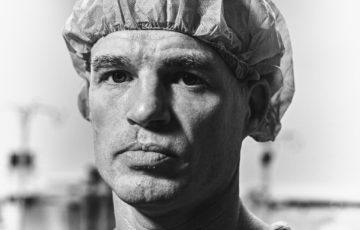Eyal Press in The New York Times:
 Some years ago, a psychiatrist named Wendy Dean read an article about a physician who died by suicide. Such deaths were distressingly common, she discovered. The suicide rate among doctors appeared to be even higher than the rate among active military members, a notion that startled Dean, who was then working as an administrator at a U.S. Army medical research center in Maryland. Dean started asking the physicians she knew how they felt about their jobs, and many of them confided that they were struggling. Some complained that they didn’t have enough time to talk to their patients because they were too busy filling out electronic medical records. Others bemoaned having to fight with insurers about whether a person with a serious illness would be preapproved for medication. The doctors Dean surveyed were deeply committed to the medical profession. But many of them were frustrated and unhappy, she sensed, not because they were burned out from working too hard but because the health care system made it so difficult to care for their patients.
Some years ago, a psychiatrist named Wendy Dean read an article about a physician who died by suicide. Such deaths were distressingly common, she discovered. The suicide rate among doctors appeared to be even higher than the rate among active military members, a notion that startled Dean, who was then working as an administrator at a U.S. Army medical research center in Maryland. Dean started asking the physicians she knew how they felt about their jobs, and many of them confided that they were struggling. Some complained that they didn’t have enough time to talk to their patients because they were too busy filling out electronic medical records. Others bemoaned having to fight with insurers about whether a person with a serious illness would be preapproved for medication. The doctors Dean surveyed were deeply committed to the medical profession. But many of them were frustrated and unhappy, she sensed, not because they were burned out from working too hard but because the health care system made it so difficult to care for their patients.
In July 2018, Dean published an essay with Simon G. Talbot, a plastic and reconstructive surgeon, that argued that many physicians were suffering from a condition known as moral injury. Military psychiatrists use the term to describe an emotional wound sustained when, in the course of fulfilling their duties, soldiers witnessed or committed acts — raiding a home, killing a noncombatant — that transgressed their core values. Doctors on the front lines of America’s profit-driven health care system were also susceptible to such wounds, Dean and Talbot submitted, as the demands of administrators, hospital executives and insurers forced them to stray from the ethical principles that were supposed to govern their profession.
More here.
